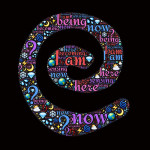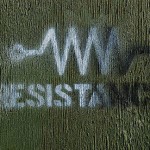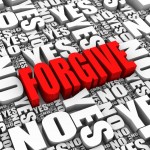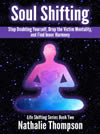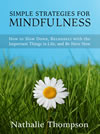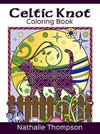
Ho’oponopono. It’s a word that has recently been cropping up with increasing frequency in my life, which is usually an indicator to me that there are a bunch of you out there who are wondering about it. So today we’re asking: What is Ho’oponopono? Pronounced “Ho-oh-po-no-po-no”, it is essentially an ancient Hawaiian forgiveness practice.
Now, as I said, the word has been popping up all over the place for me lately, most recently in Denise Duffield-Thomas’s book, Get Rich Lucky Bitch, where she talks about using the practice as a way of clearing energy blocks we may have surrounding money, wealth and abundance. I thought it was interesting that a forgiveness practice could be used like this, so I decided to look into it a little further.
The history of Ho’oponopono
Here’s what I learned about the history of Ho’oponopono: It’s an old practice, and one that has gone through a lot of changes since the earliest histories we have about it. In the oldest traditions, Ho-oponopono was a group process, where the people involved, and their families, would attempt to heal illness by confessing to wrong-doings (the belief was that sickness was caused by breaking spiritual laws, and that confession was the only thing that would bring about a cure). Everyone confesses, everyone forgives and is forgiven, and balance is restored.
In the late 70s, the practice shifted and became more steeped in things like Karma and the thought that your life circumstances today are based on what you did or didn’t do in previous lives. It became more of a practice for attempting to clear up Karmic negativity.
Most recently, the practice was picked up by Joe Vitale (one of those guys from The Secret) who introduced the form that I tend to see referred to most often, which is a constant repetition of the mantra: “I love you. I’m sorry. Please forgive me. Thank you.” You’re supposed to repeat the mantra whenever there’s something or someone in your life that’s causing you any kind of distress.
My thoughts about Ho’oponopono
My initial reaction to Ho’oponopono was annoyance and irritation because, on the surface, it does tend to be on the “blame the victim” side of things. I have problems, for instance, with its apparent belief that the victim is the one required to forgive the aggressor. According the Ho’oponopono doctrine, if you get punched in the face by someone who’s done it out of hatred, for example, you’re the one who is required to immediately forgive the one who punched you, because the other person shouldn’t carry guilt around (?!).
On further reflection, however, I do see some benefit to the practice. Because we’re the creators of our own life experiences, taking responsibility for the role we played in creating the negative situations in which we find ourselves may actually be helpful in resolving the resistance issues that attracted them. But I’d look at the practice in a somewhat different way if I ever decided to start using it. I’d focus on my own higher self, or the higher self of the person with whom I am encountering a negative experience.
In other words:
“I love you.” — I love you, Higher Self, or other person’s Higher Self
“I’m sorry.” – I’m sorry, to these Higher Selves for whatever resistance or subconscious beliefs are causing me to manifest this into my life.
“Please forgive me.” – Please forgive me, Higher Selves, for whatever part I may have played in creating this situation.
“Thank you.” – Thank you, my Higher Self, for always being there for me and always looking out for my best interests.
So that’s my take on it. Now I want to hear from you – what’s your take on this? If you have experience with it, what is Ho’oponopono to you, and how do you use it in your own life?
photo credit: pixabay.com cc (modified by me)



